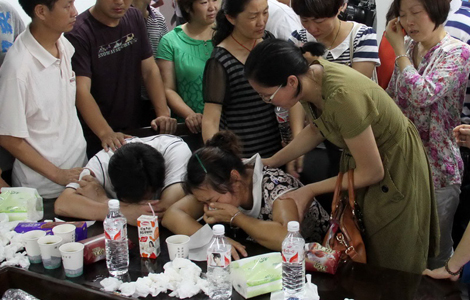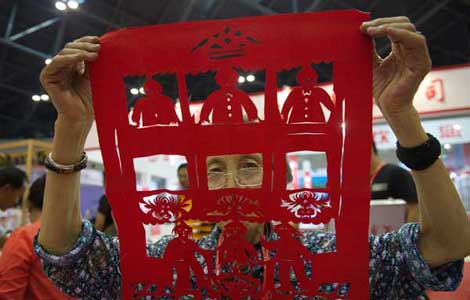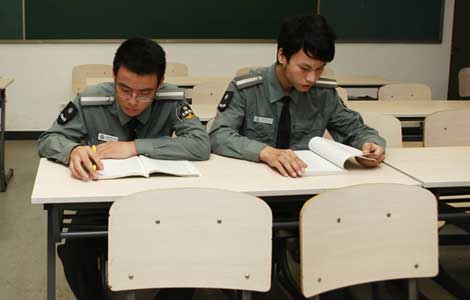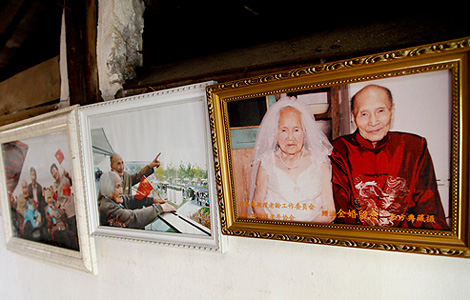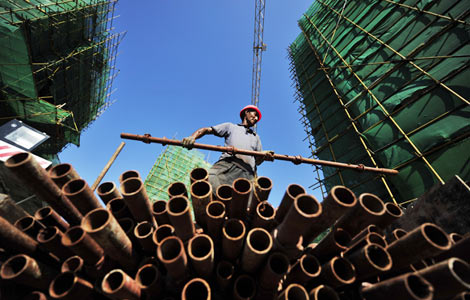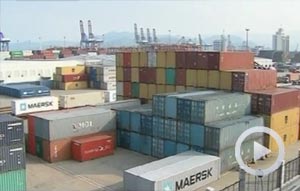Lessons from Egyptian irony
Updated: 2013-07-08 07:15
By He Wenping (China Daily)
|
||||||||
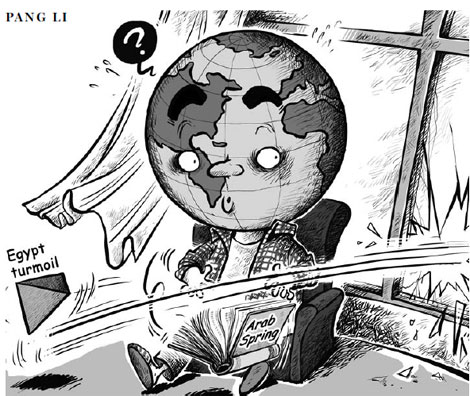
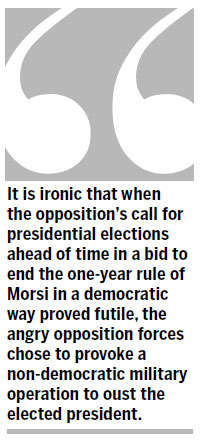
The difficulty in judging Egypt's latest political development stems from confusion over what kind of democracy to embrace
The Egyptian military's decision to remove President Mohamed Morsi from power and suspend the constitution was said to be a response to days of mass street protests demanding the president step down. That huge crowds celebrated in Cairo's Tahrir Square amid clashes between opponents and supporters of Morsi in 12 governorates across the country, which left at least 30 people dead and more than 1,000 injured by Sunday, is clear testimony of how serious the divides are in Egyptian society.
Confrontation between secular and religious forces and the showdown between an elected president and the military have pushed Egypt's democratization process to a new turning point.
Morsi was the country's first president elected through a national poll after the Egyptian people put an end to the Hosni Mubarak administration in 2011. So the government of Morsi and his party was endowed with legitimacy. Judging from the means and effect of Morsi's ousting, the military's move is no different from any other military coup.
However, over the past year, Morsi and the Muslim Brotherhood displayed a strong desire to establish a monopoly on power, not only repeatedly going back on previous promises to limit their power, but also failing to meet the demands of the people in terms of economic growth and social management.
Morsi and the Muslim Brotherhood's strong desire for power, incompetence in managing state affairs, coupled with their increasing favor for a constitution inspired by Sharia law, made a number of intellectuals and secular liberals that once supported Morsi and some liberal-leaning Muslim forces stand against him. They thought that although Morsi came to power through democratic means he was proving to be a new "pharaoh" and the policies his government was pursuing ran counter to the democracy they believe in.
Yet it is ironic that when the opposition's call for presidential elections ahead of time in a bid to end the one-year rule of Morsi in a democratic way proved futile, the angry opposition forces chose to provoke a non-democratic military operation to oust the elected president.
Supporters of the coup say that the army's move pulled Egypt's derailed democratization process back on track, while critics argue it was a sign of the country's backwardness and was non-democratic.
The army's move also left the United States, which likes to hold high the banner of freedom and democracy, in confusion. The White House has so far made only vague statements calling on the army to move "quickly and responsibly" to return "full authority" to an elected civilian government.
In fact, the difficulty in judging Egypt's latest political development stems from observers' different views about the result, means and motivation. In the final analysis, this is the reality of a worldwide confusion over what kind of democracy developing countries in transition should embrace, and how to find a suitable way to realize that democracy.
With struggling economies, immature democratic cultures and the lack of any social consensus, the "Arab Spring" that led to the fall of strongman regimes resulted in power and even belief vacuums in some North African countries. While protesters succeeded in overthrowing the old regimes, they failed to unite and rally the strength to find a new path.
If the political change in Egypt brings democracy back on track, it will be a blessing for the Egyptian people. Adli Mansour, head of the Supreme Constitutional Court, who was sworn in as interim leader on Thursday, has offered an olive branch to the Muslim Brotherhood by saying that there will be "no exclusion of anyone" under his rule, and he wants them integrated into the nation. But supporters of the ousted ruling party are calling for new protests amid news of an anti-Islamist crackdown.
An election has been promised, although no date has yet been set, but who can guarantee the country will again embark on the democratic road?
The author is a senior fellow with the Chahar Institute and a researcher with the Institute of West Asian and African Studies at the Chinese Academy of Social Sciences.
(China Daily USA07/08/2013 page11)
Most Viewed
Editor's Picks

|

|

|

|

|

|
Today's Top News
Boeing 777 passenger 'mumbled a prayer'
Ex-minister gets suspended death
Workers return after dispute
Job seekers should be cautious abroad
River pollution sparks criticism
Terror attack was planned: suspect
Booming security industry needs skilled youth
A bright future for native black pigs?
US Weekly

|

|
